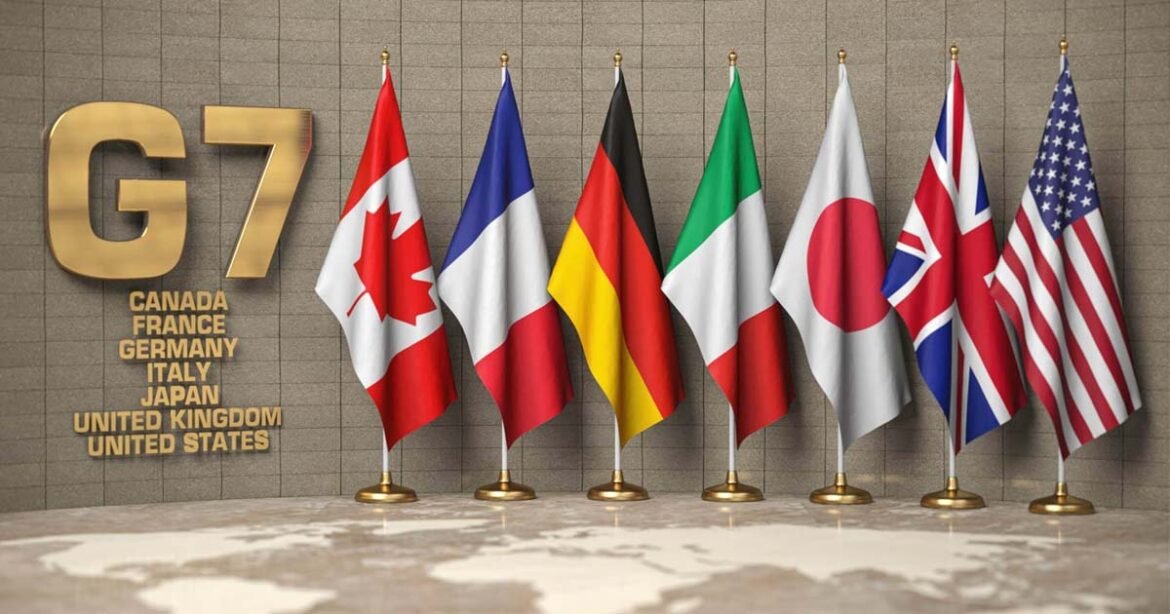The G7 secretariat and offices are temporary, and the presidency changes hands annually.
The secretariat and offices of the G7 are not permanent, the presidency rotates every year. This year, the G7 Presidency, Japan will host the 49th G7 Hiroshima Summit. The G7 Summit is an international forum held annually for the leaders of the G7 member states of France, the United States, the United Kingdom, Germany, Japan, Italy, and Canada (in order of rotating presidency), and the European Union (EU).
You can also read: QUAD: The ‘Asian NATO’ to counter Chinese influence in Asia-pacific?
In 1975, seven governments banded together to form the Group of Seven (G7). International security, energy policy, and global economic governance are just few of the subjects discussed during the group’s annual meeting. Both Rishi Sunak of Britain and Giorgia Meloni of Italy will be attending their first summit in 2023.
Japan on lead
The chairmanship of the Group of Seven (G7) was taken over by Japan on January 1, 2023, and is going to stay in effect till the end of the year, at which point it will pass to Italy. In the midst of the conflict between Russia and Ukraine, the fact that the leaders of the G7 will be meeting in Hiroshima, a city that has rebuilt itself after suffering devastating destruction from an atomic bomb and that still seeks enduring world peace, is noteworthy.
Features of the summit
In the annual G7 Summit, representatives of the G7, which shares core principles like freedom, democracy, and human rights, address the state of the world’s economy, regional affairs, and other global problems and distribute a document outlining the results of their discussions. The G7 has efficiently adapted to significant difficulties faced by the international community thanks to the direction of its members, which shares core ideals.
The agendas: what do we know so far?
Prime Minister Kishida Fumio stated Japan’s goals for G7 presidency, which include the world’s economy, food and energy safety, geopolitical problems like the Indo-Pacific and Ukraine, nuclear disarmament and non-proliferation, economic security, and urgent global issues like climate change, global health, and development.
Focus on effects of nuclear war
The leaders of the three nuclear weapon states (the United States, the United Kingdom, and France) may be compelled to confront the truth of the nuclear bombings during this summit, making it a potentially historic event. “I think the most important thing is for people to come to Hiroshima, talk with A-bomb survivors, hear about their experiences, and visit the Peace Memorial Museum,” said Kunihiko Sakuma, president of the Hiroshima Prefectural Confederation of A-bomb Sufferers Organizations. If they do, he thinks they can make progress toward doing away with nuclear weapons. his expectation is that the summit will focus on practical steps toward nuclear disarmament.
Acceleration on de-carbonization efforts
Japan hopes to get the Group of Seven (G7) economic countries to commit to speed up their de-carbonization efforts, therefore this is expected to be an important subject of conversation at the next G7 Hiroshima Summit.
Prior to the G7 conference in Hiroshima, Japan had a ministerial discussion on the topic of “realistic energy transition” on April 15-16 in Sapporo. The G7 ministers agree that de-carbonization must be sped up, according to Yasutoshi Nishimura of Japan’s Ministry of Economy, Trade, and Industry. He also said that the G7 wealthy countries need to provide energy safety and boost their economies. Each country has its own economic and energy situations, so “we want to lead discussions on concrete paths and what should be done in cooperation,” he said.


